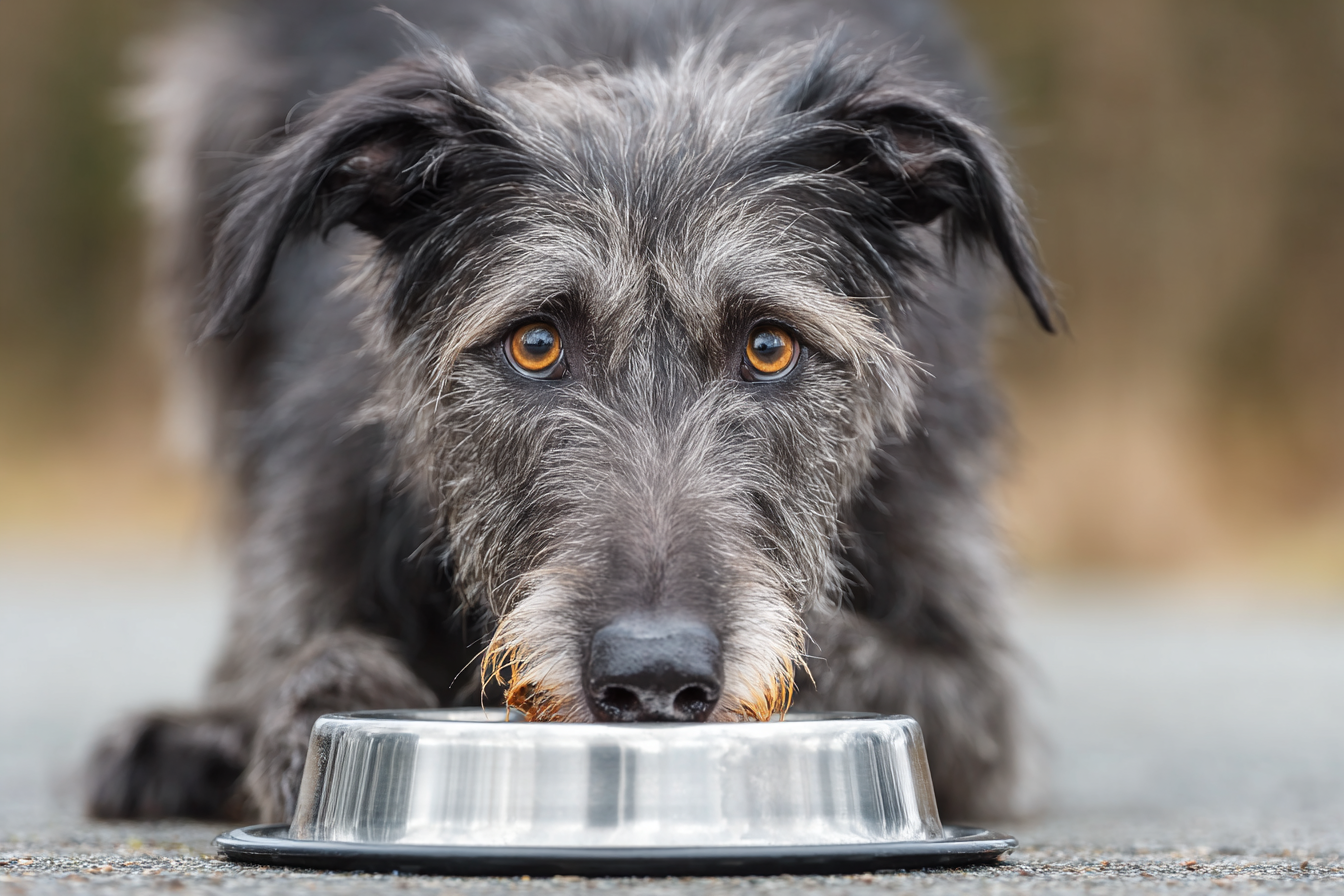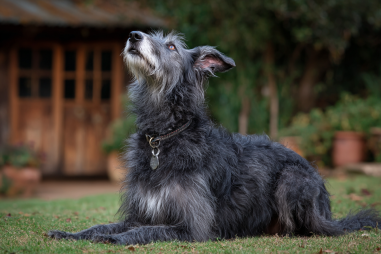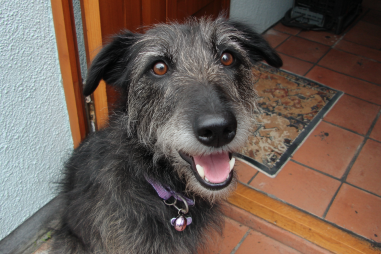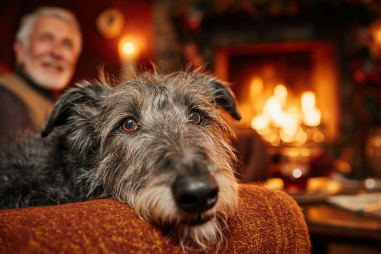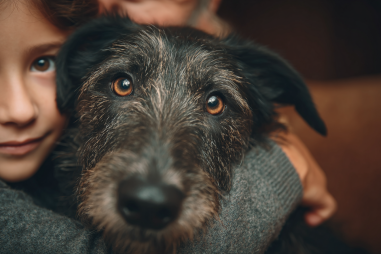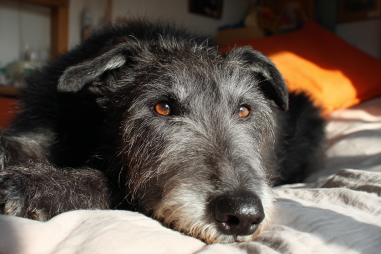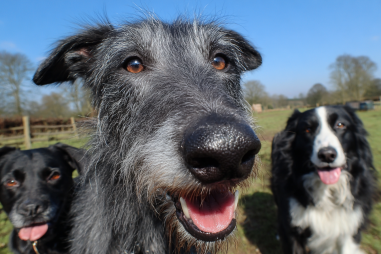Scottish Deerhounds are majestic, gentle giants known for their grace, speed, and calm disposition. Like all dogs, their health and longevity greatly depend on a proper diet tailored to meet their unique nutritional needs. Feeding your Deerhound the right foods not only supports their energy levels and muscular build but also enhances their immunity and overall well-being. Let’s dive into the essentials of Scottish Deerhound diet and nutrition, helping your canine companion thrive at every stage of life.
Nutritional Needs of Scottish Deerhounds
Scottish Deerhounds are sighthounds with a lean yet muscular physique, bred to run fast and sustain endurance. Their dietary requirements reflect this active lifestyle combined with their relatively large size. They need a balanced intake of high-quality protein to maintain muscle strength, moderate fats for sustained energy, carbohydrates for quick fuel, and essential vitamins and minerals for overall health.
Protein is especially vital for Scottish Deerhounds because it supports muscle repair and growth, particularly after exercise. Sources of animal-based protein, like chicken, beef, and fish, are generally the most beneficial. Fat provides necessary calories to support their high metabolism and energy needs but should come from healthy sources such as fish oils or flaxseed to maintain coat condition and help cognitive function.
While carbohydrates are not essential, they can be included as part of a complete diet to provide quick energy and fiber for digestive health. Whole grains such as brown rice or oats are preferable to processed grains. Additionally, calcium and phosphorus are crucial minerals for bone health, especially important for Deerhounds due to their rapid growth and large frame. Incorporating a range of vitamins, including vitamins A, E, and C, supports immune function and skin health.
Recommended Foods and Supplements
Feeding your Scottish Deerhound a diet rich in natural, minimally processed foods goes a long way toward optimal health. A high-quality commercial dog food formulated for large breeds is a convenient and reliable option, but you can also supplement or substitute with fresh foods.
Ideal whole food choices include:
- Lean meats such as chicken, turkey, and beef.
- Fatty fish like salmon or sardines to provide omega-3 fatty acids.
- Vegetables such as carrots, spinach, and green beans for vitamins and fiber.
- Complex carbohydrates, including sweet potatoes, brown rice, and oats.
- Fruits like blueberries and apples in moderation as antioxidant sources.
In terms of supplements, while many Deerhounds thrive on balanced diets without extra additions, some may benefit from:
- Glucosamine and chondroitin for joint support, especially as they age.
- Fish oil capsules or liquid to supply essential omega-3 fatty acids for coat and heart health.
- Probiotics to bolster gut health and improve digestion.
- Multivitamins designed specifically for dogs, if recommended by your veterinarian.
Always consult your vet before adding supplements to ensure they’re appropriate and dosed correctly for your dog’s size and health status.
Feeding Schedules and Portion Sizes
Establishing a consistent feeding schedule helps regulate your Scottish Deerhound’s metabolism and prevents overeating. Most adult Deerhounds do well with two meals per day, spaced around 8-12 hours apart. Puppies require more frequent feedings—generally three to four meals a day—tailored to their rapid growth and energy demands.
Determining the right portion size depends on factors like age, weight, activity level, and metabolism. Adult Deerhounds typically need around 2.5% to 3.5% of their body weight in food daily, split between their meals. For instance, a 90-pound Deerhound might consume approximately 2.25 to 3.15 pounds of food each day. However, always monitor your dog’s body condition and adjust portions accordingly to maintain a healthy weight.
Remember to measure meals accurately and avoid free-feeding, which can lead to obesity. Treats should be given sparingly and considered part of the daily caloric intake.
Foods to Avoid
Certain foods are harmful or toxic to Scottish Deerhounds and should be strictly avoided. These include:
- Chocolate: Contains theobromine, toxic to dogs.
- Grapes and raisins: Can cause kidney failure.
- Onions and garlic: Can damage red blood cells and cause anemia.
- Avocado: Contains persin, which can be harmful.
- Alcohol and caffeine: Both are toxic to dogs.
- Macadamia nuts: Can lead to weakness and tremors.
- Raw dough: May expand in the stomach and produce alcohol.
Additionally, fatty human foods or scraps can cause digestive upset or pancreatitis. Avoid feeding bones that can splinter, such as cooked chicken bones, as they pose a choking hazard and can damage the digestive tract. Always opt for safe, dog-specific treats or chews.
Adjusting Diet Through Life Stages
Your Scottish Deerhound’s nutritional needs change as they grow from puppy to senior. Understanding how to adjust their diet can help prevent issues like developmental bone problems or obesity.
Puppy Stage
During this rapid growth phase, Deerhound puppies require calorie-dense diets rich in protein, fat, and calcium. Feeding a large-breed puppy formula helps control growth rates and reduces the risk of skeletal disorders. Frequent smaller meals support energy levels and digestion.
Adult Stage
Once mature—usually around 2 years of age—the focus shifts to maintaining optimal weight and muscle mass. Adult Deerhounds thrive on balanced diets that avoid excess calories. Portion control and regular exercise are key.
Senior Stage
Older Deerhounds may experience reduced activity levels and slower metabolism. Diets lower in calories but rich in joint-supporting nutrients like omega-3 fatty acids, glucosamine, and antioxidants promote healthy aging. Senior formulations are often higher in fiber to aid digestion.
The Importance of Hydration
Water is crucial for all dogs, and Scottish Deerhounds are no exception. Due to their size and active disposition, they can lose fluids quickly through panting and exercise. Ensure your dog has constant access to fresh, clean water throughout the day.
Proper hydration supports digestion, nutrient absorption, temperature regulation, and overall cellular function. Dehydration can lead to serious health problems, including kidney issues. During hot weather or after vigorous activity, encourage increased water intake. Some Deerhounds may also benefit from water-rich foods like wet dog food or fresh vegetables to maintain hydration.
Helping Your Deerhound Thrive Through Nutrition
Feeding your Scottish Deerhound a thoughtful, balanced diet tailored to their specific needs is one of the best ways to promote their health, vitality, and longevity. Remember to focus on high-quality protein and fat, monitor portion sizes, avoid harmful foods, and adjust their nutrition as they grow and age. Pair this with plenty of fresh water and regular vet checkups, and your graceful companion will enjoy a happy, healthy life by your side.

